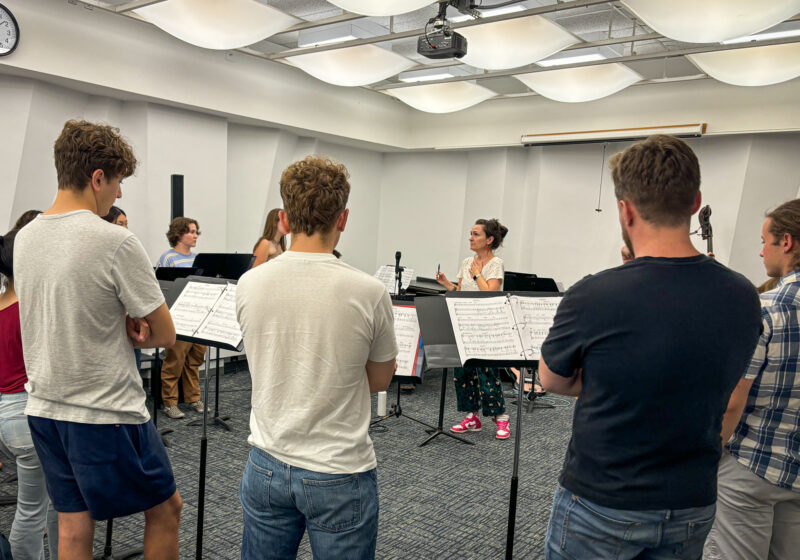The overflowing Gowen Room during Wednesday night’s Town Hall Meeting was filled with freshmen and indicative of the main problem being addressed – the University has an overabundance of underclassmen and needs a place to house them.
During the meeting, which was sponsored by the Students’ Association, Director of Residential Life Laurel Contamanolis spoke about solutions for that problem and other aspects of housing as she reviewed the lottery system and explained the need for more students to live off-campus.
Contamanolis began by explaining her predicament: next year there will be 3,500 students and only 3,462 total beds in the housing system. Although there is a projected shortage of 150 beds, Contamanolis is confident that through a combination of new rules and increased effort to get students off-campus, there will be enough room.
“There are a lot of rumors, things churning around that are incorrect,” she said. “This was an opportunity to do some explaining and show that we’re thinking about it, not going about it in a haphazard way.”
One new regulation is that Take Five, Need Five and Pay Five students will not be eligible to live on campus. Also, the Southside Maisonettes, small houses at the base of Valentine and deKiewiet Towers, will be available to juniors and seniors.
Many rules will stay the same, and Contamanolis outlined the system. Freshmen and sophomores are still required to live on campus, although there is now an appeals committee that will allow a small number to live off-campus if they are deemed responsible. Juniors and seniors are eligible, although not required, to live on campus.
Contamanolis put an end to rumors that the housing system is abandoning the lottery this year. As in past years, the priority points system grants three points to rising seniors, two points to rising juniors and one point to rising sophomores. Contamanolis suggested that students should consider joining together to increase their odds.
Students can join a number of separate lotteries. These include drawings for six-person suites, four-person suites, triples, doubles and singles. With the exception of doubles, groups of students must have the exact number of members to participate. There are also other highly specific options for early assignment that bypass the lottery, such as Southside retention and entire floors that stay together.
A student may join any number of lotteries, but is removed from the other drawings upon selecting a room. Contamanolis suggested that students have backup plans; for instance, if a group applies for a six-person suite they should be prepared to divide into smaller groups of two and four.
The materials for the lottery will be distributed the week after spring break. Contamanolis explained that students will be on-site and ready to choose a room from floor plans when their ticket is drawn.
Students’ Association President Alex Pearlman believes that the meeting helped allay worries about housing and that “people’s fears were definitely suppressed.” However, some students still have concerns.
“I thought that I would be able to get a six-person suite,” freshman Yaroslav Shtengrat said. “But because I’m applying with other freshmen, I’m starting to doubt whether that’s possible.”
The second part of the meeting concerned off-campus housing, and Contamanolis seemed intent on encouraging students to consider living off-campus next year. ResLife has not emphasized the off-campus option in previous years, and this fact is made evident by the 85 percent of students who live on campus. However, the shift is part of Contamanolis’ new plan to free up beds on campus.
“I’m hoping a lot of students will consider an off-campus option; that’s key,” she said. “Our numbers are such that it makes sense to encourage students to go off-campus.”
A panel of four students, three of whom currently live off-campus and one who is going to live off-campus next year, fielded questions about the practicality of living in their respective neighborhoods and the consensus was that the advantages of living off-campus outweigh the disadvantages. The panelists assured students that living off-campus does not mean isolation from the UR community.
“If you want to cut yourself off, you can,” said panelist and graduate student Sam Frommer. “If you want to stay connected, then just come to campus.”
Although a good number of underclassmen left after the first part of the meeting, Pearlman believed that it was a huge success.
“I was amazed by the number of people who showed up,” he said. “I think that everyone is now aware that there really is not a housing crunch.”
Wrobel is a member of the class of 2010.



